
You cannot be serious!
Mindset: The New Psychology of Success by Carol S. Dweck (2006): 3 out of 10: I was recommended this book through my reading of “The Upside of Stress: Why Stress Is Good for You, and How to Get Good at It by Kelly McGonigal” which I highly recommend. McGonigal often refers to “Mindsets” in her book and gives information and even some lessons on said mindsets. A tactic that Mindset: The New Psychology of Success by Carol S. Dweck might have looked into. But outside of a few workbook-style pages in the back, information on how to acquire a growth mindset or change into a growth mindset is pretty thin on the ground.
At the heart of Dweck’s theory lies a deceptively simple dichotomy: the fixed mindset versus the growth mindset. Fixed-mindset folks believe talent is doled out like a rare collectible. The thought process is either you have it or you don’t. Meanwhile, the growth-minded among us see skills and intelligence as ever evolving works in progress. It’s nature versus nurture, and Dweck illustrates her theory with what resembles the ravings of a madwoman. I will go into more detail below. If you are a fan of either Lee Iacocca or John McEnroe, you may want to proceed with caution.

The Good
The Good: Nothing is all bad. There is some solid advice on relationships in that all too brief chapter. So in interpersonal relationships, I may be a bit more growth mindset oriented than in other areas of my life, which is refreshing. (I don’t get jealous or stalk people… um yay me?)
And brings us to the interesting idea of compartmentalization, where we can be of one mindset in some areas (career, gaming) and a different mindset in other areas (personal relationships, writing). One might think that Carol explores this compartmentalization… she does not.

There are some worksheets at the end of the book. Surprisingly, they are not to create a Burn Book about a CEO or tennis player you irrationally hate. Alas, after completing the worksheets, I confess I did not find the Fountain of Youth, the Apple of Knowledge or the Ark of the Covenant in these pages. Mindset is a very frustrating read that did little, even with the synopsis at the end, to explain how one changes one’s mindset and how one adapts this to the rest of their life.

The Bad
The Bad: Let’s say I was writing a book about the benefits of eating meat. And as an example of a meat eater, I choose Jonas Salk, who developed one of the first success polio vaccines, and my example of a vegetarian was Hitler. You might correctly accuse me of an association fallacy or even Reductio ad Hitlerum if you are cheeky.
Carol S. Dweck has a long list of people whom she (much like Hitler) puts into different camps. There are famous people who have a growth mindset. Examples include Billy Beane (the Moneyball guy), Meg Whitman, and John Wooden.

Examples of people who do not have the growth mindset include Patrick Ewing (really any Knicks player would work), Chainsaw Al (Albert J. Dunlap), and Lee Iacocca. She spends a chapter on Chainsaw Al, which in fairness is a good example of a bad mindset eventually leading to ruin. (See also Eddie Lampert.) Then she digs in deep, and we get a screed against the most evil man on earth. Lee Iacocca.
I am no expert on Lee Iacocca. I understand he was not forward-thinking as a car executive in the mid-eighties. It’s not like the rest of the Big Three were being run by visionaries, as anyone who saw Roger and Me can attest. Carol describes a lot of actions that will sound very familiar to anyone with even a glancing knowledge of CEOs at this time. He demanded a fancier office and solidified his power… I am about to faint from the shock. I mean, the CEO of Nabisco used to fly his dogs in the company private jet. Just the dogs.

Perhaps Carol bought a late-eighties Plymouth Horizon, and this is her chance for revenge. I would not agree with such a motivation. But I would understand it.
What John McEnroe could have done to her is a bit more of a mystery.
If you had never heard of John McEnroe, reading Mindset you might think he burned out with little success. I am not a member of the John McEnroe fan club by any means, but he went 82–3 in 1984. (I mean seriously, no one has ever come close to that level of dominance).

She also mentions how he once bought a guitar and then, when hearing another musician, smashed it never to play again… Well, except he had a band for a couple of years. His wife then (and at the time of this writing currently) is Scandal’s former lead singer Patty Smyth, who pointed out to her husband that he cannot sing but he was fine strumming in the back. He played for a couple of years.
We also hear how after losing a doubles match he never played doubles again… um, Carol… McEnroe is the only male player to win over 70 titles in both singles and doubles. He is widely considered the best male doubles player.

Then we get into the whole how even tennis is a team sport. Alas, as captain of the Davis Cup, McEnroe revitalized the American team, where he was a leader both on and off the court.
Apparently I should be a member of the John McEnroe fan club… I am not even mentioning his delightful cameos on 30 Rock, His raising his three kids he had with Tatum O’Neal when she fell back into heroin addiction, and his work as an ambassador for tennis.

He was a talented, spoiled brat when he burst onto the scene. No denying that. But shouldn’t he be an example of someone who matured out of that fixed mindset?

The Ugly
The Ugly: Let me start with a comment from my review of 1984’s Special Effects directed by Larry Cohen
“You nailed it.
The plot is engaging. The locations are intriguing. The acting is awful-ing.
One can only wonder how this movie would have fared if directed by Brian de Palma and starred John Malkovich as the director and James Spader and Michelle Pfeifer, as the couple. Don’t get me wrong, Bogosian is fine. But nearly everyone else is so amateurish that they distract from the movie.
I’ve watched the movie twice. Each time I find myself thinking “what if” and then looking at the locations and sets.
Special Effects isn’t worth a third look. But it is worthy of remake.”

Now imagine if I wrote a book and included that comment and others like it. I am, of course, a brilliant movie reviewer. Here are some anonymous people to confirm that. And not just a couple of letters from wellwishers and fans to establish my bonafides in the first chapter or perhaps introduction. I mean, that might raise an eyebrow, but it is understandable, I guess?
No, let’s sprinkle these letters about every ten or twenty pages or so randomly throughout the entire book. Letters from educators saying what a miracle worker I am. Letters from grateful parents. I swear about halfway through the book I actually stopped and exclaimed, “Are you kidding me?” as another random letter took up two pages on my Kindle with unsolicited praise.
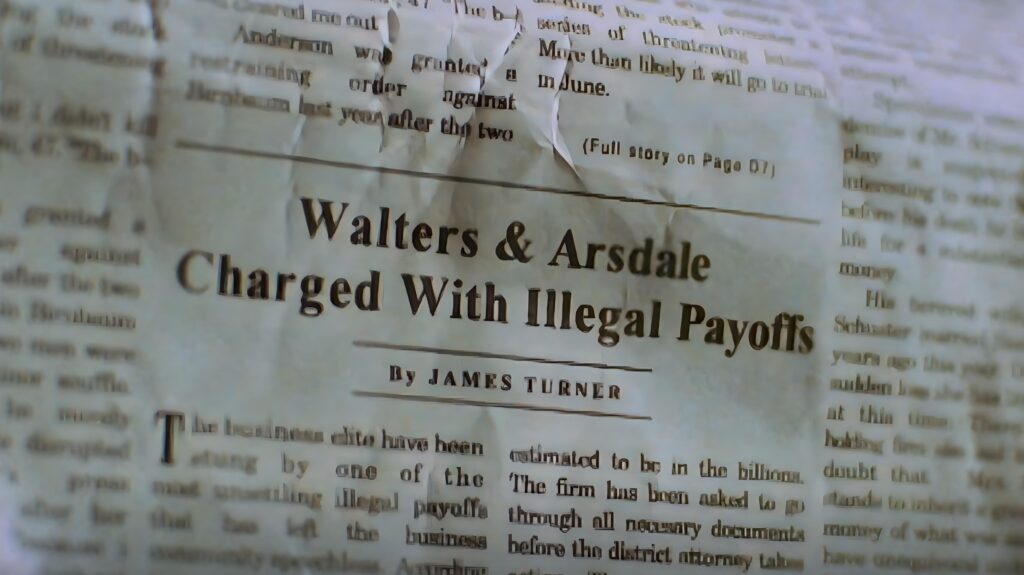
It’s all a bit cultlike. There are some other cult-like things going on. For one thing, we have growth mindset heretics. Yup, into a debate about whether growth mindset is about praising effort or about praising results. Apparently, there are groups of parents that praise effort no matter what the results. Carol calls these people False Growth Mindsets (Splitters) and they are apparently the bane of Carol’s world.
You see, these heretics are “doing it wrong” and turning growth mindset teaching methods into something banal and self-destructive, like the self-esteem movement. Carol sees them as an existential threat. Gathering in groups turning her growth mindset baby into a well-meaning but poorly implemented pop psychology one size fits all approach.

Perhaps the parents and teachers are not as dedicated or talented as the three she highlighted for chapter after chapter earlier in the book in some sort of education Mary Sue fantasyland where parents and administrators never interfere and the teachers have no life outside their charges like they were all being played by Julie Andrews.

In Conclusion
In Conclusion: You know I am sometimes convinced people actually never take the time to read the books they recommend. Throughout my longish life, I have had people recommend The Population Bomb by Paul R. Ehrlich. I am convinced that not a single person who recommended The Population Bomb had read it recently before recommending. Because if you actually read The Population Bomb by Paul R. Ehrlich (who also was a Stanford professor. Must be something in the water.) you will be treated to the ravings of an actual madman. Though his idea of banning children’s vaccines so we have fewer of them live to adulthood would fit nicely in the current administration here in the State of Florida now I think about it.
While the madness of Mindset: The New Psychology of Success is less global (and genocidal) than The Population Bomb, there are passages… hell, actual chapters that read like a Karen off her OCD meds. The obsession with Lee Iacocca and John McEnroe is something one has to read to appreciate. It crosses from ill-informed to crazed stalker as paragraphs turn into pages and pages turn into chapters.

The greatest sin of Mindset: The New Psychology of Success is that I am still unclear how exactly I am supposed to get a growth mindset, and I am starting to seriously wonder if I want one. Will it turn me into a crazed harridan who constantly posts letters praising herself every ten pages? Will I develop an irrational hatred for Jack Walsh or Andre Agassi? Will I claim that England will be a vast wasteland where everyone is dead by the year 2000? Okay, that last one was The Population Bomb.

Random Notes from reading
Well, I am reading this because of my enjoyment of The Upside of Stress. The concept of mindset is a major factor in that book, and my review uses the word seventeen times. So I am guessing (it has been a while) that this book was recommended by that one. And I was curious about mindset. (Is it a technique, a philosophy, or a death cult religion?)

Based on the first couple of introductory pages, I am leaning towards Death Cult religion. I mean, I understand the introduction of any book, particularly a self-help book, is going to make some claims. But I feel like I am about to be sent to a center to be made clear and learn how to levitate.
Well, we will see if learning mindfulness makes me richer, successful, handsome and virile (or viral, I will take either)

——————————————————————————————————————
Okay, this has gotten a lot better. Actually read a decent chunk last night (up to ten percent.) So we have two mindsets, growth mindset (Yay) and something, something not growth mindset. (Boo)
So she starts off with the question, are you someone who believes that intelligence is something one can change or is it a fixed attribute? Is your intelligence more like your height or your weight?

I confess I lean towards the wrong answer on this one. That intelligence is a fixed attribute. Part of that reason is that I have been told and have found myself that I am pretty darn intelligent. To me, this is no more a point of bragging than me being 6’ 2”. It is a fact (much like my balding is a fact… just to make sure we are not on too much of a fantastic look at me train here.)
Again, this is, to me, an inherent fact. I think people’s personalities can change over a period of time. I have observed this in myself and others. So it would be foolish of me to believe differently. And perhaps I have gotten slower (stupider?). I also may have gotten wiser. I seem to be less of an asshole, so there is that.

The point is, I am on the wrong side of the scale in her examples. I took a solid look, and I am not in the growth mindset in a lot of areas of my life where I used to be in that mindset. Work and social life are two glaring examples. My willingness to take risks has certainly disappeared, but I want to focus on something else with fewer real-world consequences; video games.
Now I don’t play a lot of video games. I own a lot of video games and inexplicably buy more occasionally and have spent thousands on game consoles and gaming PCs and not for nothing spent a chunk of the last few days arguing with myself whether I should upgrade my current gaming PC as Crusader Kings III is slowing it down something fierce and I bought Chapter IV which will expand the map into East Asia and will slow it even more.

Plus, with the new Trump tariffs, this is just the time to strike. On the other hand, money is tight, and work is laying off people. My cash flow is only positive if I squint real hard, sell my blood and eat a diet of Costco hot dogs. So I need a four thousand dollar charge like I need another hole in my head. Interest free for a year be damned. Good lord, I just bought a new lawn mower and washing machine last month. Where does it end?
So back to video games. Is buying a 4k gaming PC an example of a growth mindset? The old me would have bought it in a heartbeat, and the old me had a growth mindset. The old me also had the money management skills of a bluejay with ADHD.

She talked about how experiments with schoolchildren showed those with a good mindset wanted harder puzzles so they could learn while the other… let’s call them loser kids… wanted to play with the same puzzles.
So back to video games. I have a few comfort games I like to play. I don’t play soul-likes or anything challenging. I like to figure out how to win, and if I do, I will play that game all the time and feel good about myself. Look how skilled I am.

I was not always this way. I finished two of the Kings Field Games, for God’s sake. I used to play multiplayer Battlefield 1942; I used to board game at a high level (World in Flames). Gaming used to be a challenge for me. Now it is a soft couch and an old pair of slippers… Why? And what does this say about my mindset?
Why would I rather watch an old TV show or a Sci fi exploitation film than, say, Moonlight or Parasite? Or why is the only Parasite I have watched in the last five years starred a monster, a great car and Demi Moore?

Why is my reading not more challenging? Why is my recreation all about comfort and making myself feel better? My life seems designed with almost no friction or discomfort.
Why am I so happy with this? You know what? I do not currently have a growth mindset, and I am happy… or at least comfortable… do I want to change? No, I am not using this to pull the trigger on that new gaming PC… well, not today at least.

One other thing: a book like this can quickly fall into survivorship bias. (Einstein was thought an idiot, but he worked hard and had a growth mindset). There are plenty of people who constantly challenge themselves and are miserable from cradle to grave and people who find a niche and lead quiet, unremarkable and extremely pleasant lives. What do you really want?

As Danny Kaye sings in various Fallouts
They hurry like savages to get aboard an iron train
(The Tring-galim-buhoo-laham-bah-le Express)
And though it’s smokey and it’s crowded they’re too civilized to complain
(Ah-lo-ka-doh-ho-saw-he-ma-hai-na)
When they’ve got two weeks vacation they hurry to vacation grounds
(What do they do, Danny?)
They swim, and they fish, but that’s what I do all year round

—————————————————————————————————————
Okay, about 17 percent through the book. How many mindsets are there? There are two mindsets. A growth mindset (Yay) and fixed mindset (Boo). Which mindset am I? I am the fixed mindset (Boo). Do I want to be the growth mindset? Yes… How do I accomplish this change? I have no idea whatsoever.
Look, I know it is still early going and I am only about a fifth of the way through the book, but for the love of Jesus, can we start the ways to change our mindsets already?

Carol S. Dweck is still shilling the growth mindset with various examples from history of fixed mindset people failing despite talent and growth mindset people living better lives. I’m sold. I have drank the flavor aide, and I have accepted this flower from the religious consciousness church, and would care to make a donation?

So once again I have a book that I am inclined to agree with (I am reading the book after all) spending way too much time selling me on something that I have already agreed to.
Hopefully, we will get to the action portion of fixing my mindset soon.

____________________________________________________________________________________
Okay, we are making progress. Well, the author is making progress. Still, there are a lot of stories about how a growth mindset turned a life around. Carol S. Dweck also has an increasingly disturbing habit of putting in letters of praise she received from former students.
It is disturbing because it seems like the exact thing a person with a look at me fixed mindset would do. Almost to the point, I am wondering about the author’s mindset.

So after the stories or experiments with inner-city children where we randomly ruin half their lives and turn the other half into successful adults. We are approaching something resembling a how do you actually change one’s mindset?
I also have a better grasp of what a growth mindset is. Not a good enough grasp to explain it to another person. But the thought cloud in my mind is starting to form ice crystals.
A note: My writing program keeps highlighting Growth Mindset as business jargon. Not sure what to read into that just yet, but I figured it was worth noting.

——————————————————————————————————————
Man Carol S. Dweck hates Lee Iacocca. Forget Ken Lay of Enron or Jack Welsh, Lee Iacocca is the alpha example of the evils of a fixed mindset. So we get plenty of details… again… of how Lee Iocacca was a horrible manager, a bad person, and hated puppies and America.
But I am getting ahead of myself. First, we have a fairly large section on sports. She talks about about Billy Beane. If that name sounds familiar it is because he is the guy from Moneyball. And yet again the universe has given me a reminder that A. I have to read Moneyball. I love Michael Lewis books and Moneyball sounds like a banger. And B I have to watch Moneyball. I have seen various clips on YouTube, and it is on Paramount Plus… so really I have no excuse. Okay, I am going to put it on the list.

Anyway, Billy Beane gets a redemption story. As a player, he relied completely on talent with a fixed mindset and failed miserably. But as a baseball executive, he developed a growth mindset, and the results were a championship.
So far, poor John McEnroe is almost in a tie with Lee Iacocca on the Mindset hate train. Carol S. Dweck keeps bringing him us as an example of people who just coasted on their innate talent, lack of personal responsibility, and fixed mindset. She puts him in the same category as a Keyshawn Johnson, for example, as a very talented player who flamed out, or Patrick Ewing…

But I am not saying some of her examples did not live up to their full potential and coasted on talent alone. I mean, I am a lifelong Jets fan. Not living up to their full potential is practically the team slogan.
But Hall of Famer Patrick Ewing not wanting to be a power forward when he was clearly more comfortable (and talented) as center is a stretch. Sure, he never won a championship, but part of growth management is that it is not results-based.

Also, people like Dan Marino never won a Super Bowl, and yet he is rarely left out of the best quarterbacks of all time conversations.
Also, I realise this book was originally written in 2006 but it has been subsequently revised (the Bruce Jenner/ Caitlyn lines are proof of this) so I am surprised that Michael Jordan and Tiger Woods are held up as Growth Mindset champions. Are we sure about this? I have no doubt that both worked hard (notoriously so) but the idea that neither had overwhelming natural talent to begin with or were not recognized early for their talent is laughable.

Which brings us back to John McEnroe. If you had never heard of John McEnroe, you might think he burned out with little success. I am not a member of the John McEnroe fan club by any means, but he went 82–3 in 1984. (I mean seriously, no one has ever come close to that level of dominance)
She also mentions how he once bought a guitar and then when hearing another musician smashed it never to play again… Well, except he had a band for a couple of years. His wife then (and of this writing currently) is Scandal’s former lead singer Patty Smyth, who pointed out to her husband he cannot sing. Still, he played for a couple of years.

We also hear how after losing a doubles match he never played doubles again… um, Carol… McEnroe is the only male player to win over 70 titles in both singles and doubles. He is widely considered the best male doubles player.
Then we get the whole how even tennis is a team sport. Alas, as Captain of the Davis Cup, McEnroe revitalized the American team, where he was a leader both on and off the court.

Apparently I should be a member of the John McEnroe fan club… I am not even mentioning his delightful cameos on 30 Rock, His raising his three kids he had with Tatum O’Neal when she fell back into heroin addiction, and his work as an ambassador for tennis.
He was a talented, spoiled brat when he burst onto the scene. No denying that,. But he should be an example of someone who matured out of that fixed mindset.

I agree mindset in sport is as important if not more important that natural talent. I just think Carol S. Dweck is gilding the lily in her attempts to prove her point. That said, we should be back to the more comfortable and defendable Lee Iacocca is the worst person ever soon enough.

____________________________________________________________________________________
We are still on business. We got a couple of lines about how Lee Iacocca may me turning the page with charity work. It is blink-or-you-miss-it sentence but still… green shoots. We go more into depth with bad fixed-mindset CEOs (Boo Hiss) and great growth-mindset CEOs (Yay). Some choices are fraught. I mean Jack Welsh’s reign (Team Growth Mindset) has not aged as well as one might suspect.
She talks about some of the destructive measures of fixed mindset CEOs, and I am on board. I was surprised she did not mention Eddie Lampert of Sears fame, but we get a chapter on Albert J. Dunlap… AKA Chainsaw Al.

Anyone of a certain age watching Elon Musk promoting Doge with a chainsaw on stage were definitely getting Chainsaw Al warm and fuzzies. The best way to describe Chainsaw Al is he watched the movie Wall Street and took Gordon Gekko as not just the hero but as a blueprint to make money.
As Carol S. Dweck states, all Al cared about was making money. And when there was no money being made, he was left with nothing. He eventually was hoisted by his own petard because such strategies are really unsustainable and always have been (see also Vandals in Rome).

I have a serious question, though. Was Chainsaw Al really a fixed mindset? I mean, it almost seems she is making lists of winners and losers and then assigning the mindsets to each of them. I mean, Jim Jones had a growth mindset, certainly, yes?
We also get a chapter on the importance of female CEOs out of nowhere and somewhat à propos of nothing. Carol S. Dweck holds Meg Whitman as the gold standard for female leaders, which honestly is all you need to know.

The out of nowhere female CEO chapter kind of reminded me of that chapter segue in “Reasons Not to Worry” a book about Stoicism by Brigid Delaney where Brigid goes hard against Global Warming… Which was strange (or perhaps ironic) coming from an honest to goodness professional travel writer.
Hopefully, we will eventually wander back into how to change your mindset territory and spend less time on memory lane.

____________________________________________________________________________________
Okay, quick note before today’s read: I was wracking my brain to think of an athlete whose undeniable failure was a perfect example of the fixed mindset. The YouTube algorithm came to the rescue a few days later. Jeff George did play a good long while in the NFL (over ten years) and he had the best throwing arm of any quarterback ever. The rub he had a million-dollar arm and a ten-cent brain. (There are other quarterbacks that could be runners-up, such as Ryan Leaf. Honestly, incredibly athletic quarterbacks with zero field general skills are almost a cliché.)

——————————————————————————————————————
Okay, well, we have wound down Business Tycoons and awe are now into interpersonal relationships. And the good news I can see some growth mindset green shoots in my personality.
Apparently, one sign of a fixed mindset is the need for revenge against those who have wronged you. This has been a strong suit of mine for a long while. There have been times I have not been perfect on this, but overall, and especially in interpersonal relationships, I have been very chill about revenge and retribution.

On a related note, possibly à propos of nothing, I also really do not understand stalking. I mean, I don’t get it at all. Who has the time? Why? Has it ever worked? Even once. I mean, my second wife kind of stalked me when she was interested in starting a relationship with me, but I am dim and lazy and needed the hint.
So in interpersonal relationships, I may be a bit more growth mindset oriented than in other areas of my life, which is refreshing. And brings us to the interesting idea of compartmentalization, where we can be of one mindset in some areas (career, gaming) and a different mindset in other areas (personal relationships, writing).
I do not know if Carol S. Dweck is going to explore this, but I would like to at least, in my personal and business relationships.

____________________________________________________________________________________
Well, we finished up romance and went into friendship. Honestly, no really great takeaways here. Some of your friends have a closed mindset (boo) and some of your friends have a growth mindset (yay). I did not find out which are more likely to help you move on a Saturday, however.
Actually, a lot of the relationship and friendship chapters seem light on advice or outcomes. I do not know what my takeaway should have been. My actual takeaway is growth mindset is better, and some friends suck was kind of already built in.

Then we have a bit on shy people. Shyness is a strange subject because it is such a large spectrum. I am shy when I am in a new place and don’t know anyone. Honestly, I think most people are. It is kind of creepy when people are not that way.
Think of that one scene from Seinfeld. Here I will let Chat GPT synopsis it. “As George tries to integrate himself into the office, he’s painfully out of sync with his coworkers, who are indifferent or outright hostile. At one point, he stumbles upon a company farewell party for a man he doesn’t know who’s leaving the company. George, desperate to fit in and be seen as one of the gang, spontaneously takes it upon himself to give a heartfelt farewell speech… about a man he has literally never met.”

Now, crippling shyness is something else, of course, and I am unclear if it is something that can be fixed by changing one’s mindset.
Unfortunately, Mindset then journeys into school bullying of all things, and the train really comes off the tracks for this chapter. For one thing, she is back to her printing letters of praise from strangers whose lives she changed. And then she attempts to analyse, excuse and almost backwards compliment The Columbine Shooters. You know what? Fuck those guys. I have about as much sympathy and understanding for those guys as I do for the 9/11 hijackers.

I am shocked she not only names them, but talks at length about their struggles. If someone commits suicide, I am saddened. If someone kills his wife and kids and then commits suicide, well, fuck that guy. I am shocked she is so tone deaf in this chapter.
Some people are just evil. They really don’t need to be defended and explained away in a book about changing one’s mindset. I am not changing my mindset for such trash.
Hopefully, I will calm down by the next chapter, which I am assuming is not about how Hitler had a growth mindset.

__________________________________________________________________________________
Well, we are fully in teachers and children and having a positive mindset. First of all, I want to say for the record that I have no doubt that being supportive and fostering a learning mindset is good for raising a child. I also think the devil is in both the details and the day-to-day consistency.
I have my doubts as to whether anyone could do this consistently or perfectly. I am also unsure that it is always the best approach in every circumstance. The devil really is in the details.

I think it is a good starting mindset and having people be more action oriented than simply results focused can often be a wonderful thing. But too often the examples given are a touch extreme. (Lots of parents are disappointed if their kids do not get in to Harvard for example).
I am reminded of my father’s request during my high school years. Do not get arrested and do not knock anyone up. No permanent damage was his idea. Not necessarily a positive mindset, but not the worst parenting mantra.

________________________________________________________________________________________________________________
We are still in the schools and education. On one hand, I agree that dumbing down the lessons to help the intellectually disabled kids and those with negligent parents helps no one. And any child can learn with the right teacher.
Alas, the teachers highlighted are like the Michael Jordon of teachers. It seems unrealistic to expect every classroom to have such brilliant saints.

More to the point, though, I feel as if Mindset has lost the plot a touch. I mean we are still on education. And seemingly in the weeds with the same. What this does to teach one to train themselves to have the right mindset is currently escaping me.
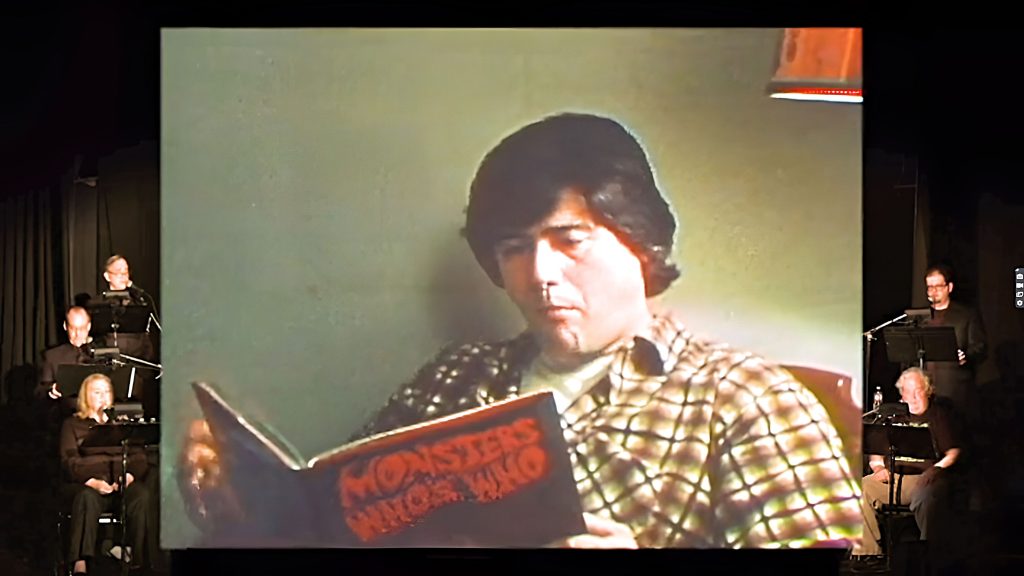
________________________________________________________________________________________________________________
Okay, the mindset book is really testing my patience. We are still on teachers. Very deep into teachers. Teachers who apparently have no life outside of teaching and spend every free hour helping their charges at the highest possible levels possible. Charges, I might add, who do not have dysfunctional parents who interfere with the education process and undermine all the hard work of the teacher.
We seem to have drifted off into some sort of education, Mary Sue fantasy land. I reviewed a documentary once called Tin Soldiers which was about people overcoming the challenges of being paralyzed or being recent amputees.

One of the featured people in the documentary was Olympic athlete Alana Nichols, who is an amazing person with a ton of accomplishments. As I describe her in my review, “an Olympic woman who won the Nobel Prize in Chemistry during her Playboy shoot.”
One would have to be certifiably insane to say to someone in a wheelchair, look how Miss Nichols does it. She is an outlier. Even in a documentary that features her, it is clear she is at another level.

The few teachers featured in these chapters are outliers. Thye apparently have all the time in the world and never have a bad day or are tired or just phone it in. You know, like how people at actual jobs do occasionally. It has less to do with Mindset and more to do with…. well I am not sure what Carol S. Dweck is on about here. You can’t learn basketball from watching Michael Jordon. Even Michael phoned it in occasionally during the regular season.

——————————————————————————————————————————————
Well, good news. We left teachers and teaching for a minute. We have ventured into the world of college basketball with Bob Knight (Indiana Hoosiers) and John Wooden (UCLA Bruins). Anyone who is really old will not be surprised to hear that Bobby Knight is our person not to emulate and John Wooden is. I recall the late Bobby Knight and he was a screamer. He also had the most wins ever in NCAA Mens Basketball (902) when he retired.
Wooden (who was born in 1910) is a touch before my time. And I am not that young. Anyway, he apparently had a growth mindset and was very successful. Knight, as I noted above, had a fixed mindset and was also very successful. I am a bit unclear on what I am supposed to take away from this. Wooden was a nicer guy and a beloved coach? Bobby Knight was all about himself? It is easier to recruit people to Southern California than to Indiana?

We then get into a debate about whether growth mindset is about praising effort or about praising results. Apparently, there are groups of parents that praise effort no matter what the results. Carol calls these people False Growth Mindsets (Splitters) and they are apparently the bane of Carol’s world.
You see, these heretics are “doing it wrong” and turning growth mindset teaching methods into something banal and self-destructive, like the self-esteem movement. Apparently we have to wait till the last chapter to actually find out how to use and implement growth mindset so I am keeping my tea lukewarm for now but Carol sees the existential threat of turning this into a well-meaning but poorly implemented pop psychology one size fits all approach. Perhaps the parents and teachers are not as dedicated or talented as the three she highlighted for chapter after chapter earlier in the book.
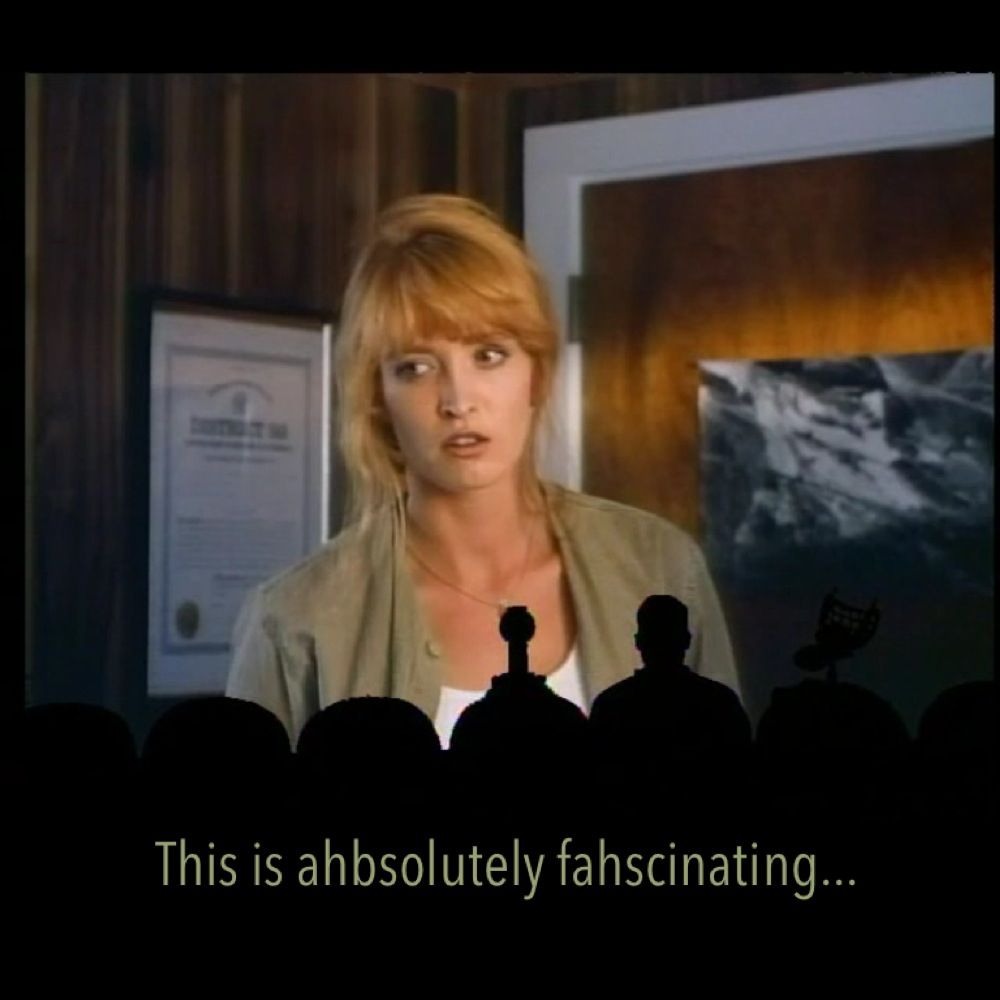
——————————————————————————————————————————————
We seemed to be getting to the mindset workshop, how to do it portion of the book. I can see growth mindsets from my porch.
Alas, the previous chapters i just read were more lessons from the classrooms, and her favorite testimonials make a big comeback as well. She seems to take some pains to realize that scaling up her super teacher model is not practical, so she introduces a computer game she created to teach growth mindsets.
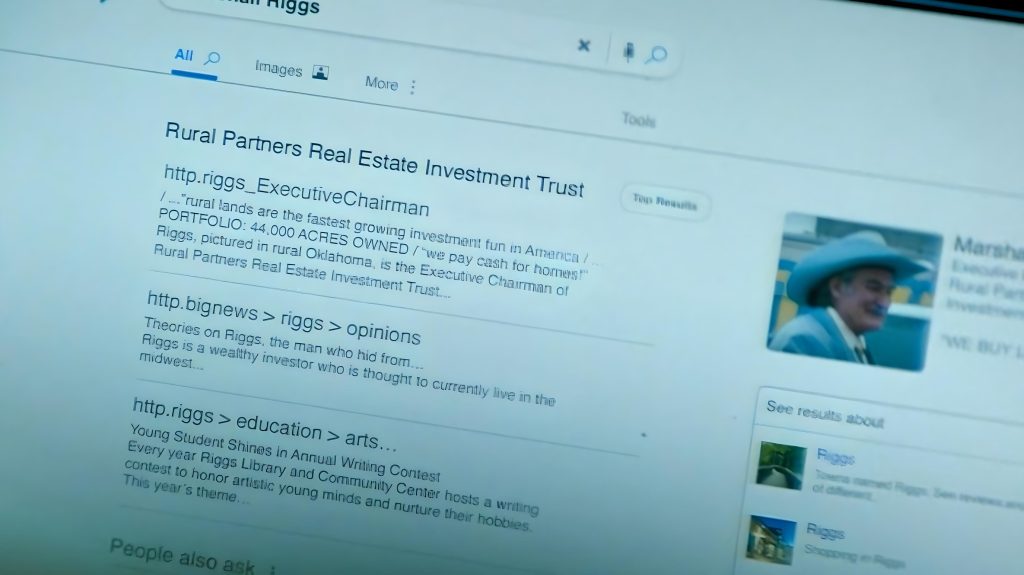
I mean, it seems nice, and her description of the struggles of moving from a fixed mindset giving you positive reinforcement to the unknown territory of a growth mindset is refreshing. I just can’t believe I have had to read this much book to get to this point where the rubber starts to hit the road.
Telling people the more you use your brain, the better it works seems healthy. There seems to be an unsaid you are not smart because you don’t use your brain in there though. Part of the issue I have is that while I am certainly a believer in potential and improvement, I think there are things that are innate to individuals. And perhaps encouraging the development of the things people already do well would be more productive.

I don’t need John Waters learning nuclear physics. I need him writing and directing. If you yourself or someone you know has poured time and money into a pursuit, they were ill-suited for all the hard work and positive thinking won’t help. As Harry Callahan says in Magnum Force, “A man’s got to know his limitations”.

________________________________________________________________________________________________________________
Well, the Mindset ideas about how to deal well with a breakup are excellent. Good thing to read to get your head into a good space. Is it too little too late, however? Kind of yeah. I mean, did we really need pages after pages of the evils of Lee Iacoca and John McEnroe? Not to mention the endless sessions on teaching techniques like one was watching an hour-long version of “Setting up a Room” but without the underlying sexual tension.
Mindset: The New Psychology of Success has been a slog. Unusual for a non-fiction book. It has taken me forever to read it simply because I lacked the … well, mindset perhaps… to put myself through any more chapters. I am almost at the end, and I should have it finished by tomorrow. I am glad it seems to be ending on at least a helpful note so far.

——————————————————————————————————————————————
My God, this is a slog. We are back to teaching… well, parenting technically. Our daughter was perfect, but she had ulcers and was a minute away from a nervous breakdown. Could it be the extreme pressure and over-scheduling causing this?
Ya think? The main issue I seem to have with the authors’ advice in the child-raising scope is she seems to live in Narnia. “All the women are strong, all the men are good-looking, and all the children are above average.” There is no poverty, sex, peer pressure, or parental stress in the author’s world. Just a perfect world where, apparently, parents have hours every night to create extra homework to challenge their children. Because nothing kids like more than to be challenged with extra work rather than, say, play Mario Kart.

Much like the chapter with those miracle worker teachers reaching underprivileged kids like some sort of Anne Bancroft wearing a cape, here we have parents with unlimited time and resources shaping the children of the future.
It all seems good on paper, but i think that the first whiff of real life will knock down this house of cards. For an adult looking to adopt a positive mindset (which I clearly at this point do not possess) the advice continues to be next to useless.

If Mindset: The New Psychology of Success presented itself as a child-raising book, I would be more forgiving. But if it is supposed to fit that role, I ask once again what is with the chapters on the evils of Lee Iacocca are doing there? I am of two minds on this book. Unfortunately, the two minds are frustration and hate.

——————————————————————————————————————————————
Well, we are back to a more productive part of the book. Carol S. Dweck has acknowledged her growth mindset cult has taken over academia and the business world, so no one will admit to having a fixed mindset anymore than they would a small penis.
Her initial solution is quite sound. Point out that everyone, no matter how enlightened, still has a fixed mindset. So far, so good. Then she then has her participants name the fixed mindset and explain when it rears its ugly head. It is an idea that sounds silly on paper and comes across as a bunch of people on the verge of schizophrenia. But I get the feeling in real life this kind of exercise works well.

Whether I would share such insights with coworkers in a group session at work, however, is something I have to confess I might not be comfortable with. Also, I could not figure out what to call my fixed mindset. Everyone in the book had meaningful names that exposed a part of the trier psyche. I am drawing a fucking blank over here.
I do want to defend the fixed mindset part of your brain now that Carol has been kind enough to give us permission to talk about it. Having a voice in your brain saying you suck at this, you should quit, is not always a bad thing. Time is our most precious resource, and there are some things we suck at that we stubbornly stick with.

Not to mention the video games that are too hard, the books that are too thick, or the movies that are too boring. A fixed mindset can help us avoid the sunk cost fallacy of finishing all our entertainment.
Lastly, a fixed mindset may not be the best in a relationship, but it can often be a good catalyst to get you out of a bad friendship or relationship early rather than Iate. The admittedly “I can fix her” attitude of the growth mindset can lead one down a bad path.
You need both a fixed mindset and a growth mindset. Now if I only knew which one to listen to? But that is a Cinematic Diversions problem, not a Mindset: The New Psychology of Success problem.
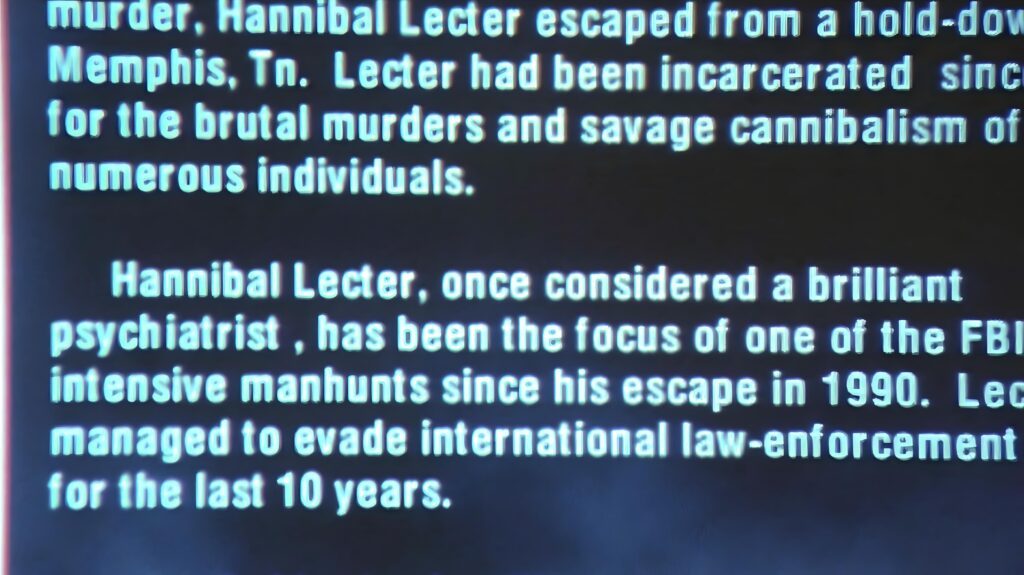
________________________________________________________________________________________________________________
And we are done. I always complain that a self-help book could be an email and Mindset: The New Psychology of Success by Carol S. Dweck ends with a two-page description of Mindsets and a helpful chart. An obvious chart… but helpful.
Growth mindset is both a simple concept and a hard one to implement with any consistency. The challenge is, will you use it when stressed? Or six months, weeks, days or minutes after you finish reading this book.

I confess I did not find the Fountain of Youth, the Apple of Knowledge or the Ark of the Covenant in these pages. It was a very frustrating read that did little, even with the synopsis at the end, to explain how one changes one’s mindset and how one adapts this to the rest of their life.
